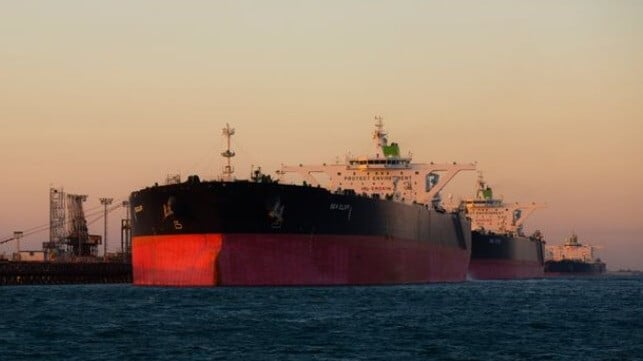U.S. Launches Largest Sanction Package Targeting Iranian Trade Since 2018

More than 50 individuals and entities, as well as 50 ships ranging from tankers to containerships, are being designated in the largest U.S. sanction package targeting Iranian assets since 2018. The U.S. Department of the Treasury and the Office of Foreign Asset Control, in coordination with the U.S. State Department, are launching the expansion of the sanctions targeting a financial empire it says is controlled by Mohammad Hossein Shamkhani, the son of Ali Shamkhani, a top political advisor to the Supreme Leader of Iran.
Treasury assets that Hossein “leverages corruption through his father’s political influence at the highest levels of the Iranian regime to build and operate a massive fleet of tankers and containerships. This network transports oil and petroleum products from Iran and Russia, as well as other cargo, to buyers around the world, generating tens of billions of dollars in profit.”
In a detailed announcement, Treasury maps out a broad network of companies and individuals all involved in the efforts and a wide-ranging program designed to conceal the activities and launder billions of dollars in proceeds. Hossein’s network, they assert, comprises a vast fleet of vessels, ship management firms, and front companies, involved in the global sale of Iranian and Russian crude oil and other petroleum products, which it says are most often sold to buyers in China.
“The Shamkhani family’s shipping empire highlights how the Iranian regime elites leverage their positions to accrue massive wealth and fund the regime’s dangerous behavior,” said Secretary of the Treasury Scott Bessent. “The over 115 sanctions issued today are the largest to date since the Trump Administration implemented our campaign of maximum pressure on Iran. These actions put America first by targeting regime elites that profit while Tehran threatens the safety of the United States.”
They report that the network employs significant measures to disguise its operations and obfuscate its ties to the Shamkhani family, Iran, and Russia. They link the network and its operations to companies and individuals in the United Arab Emirates, the Marshall Islands, Switzerland, Hong Kong, and elsewhere.
Although the U.S. says the primary income source for Hossein’s network is oil sales, it reports that the network also operates a containership fleet that carries cargo both to and from Iran, among other locations. It says that in an attempt to evade prohibitions on the sale of certain non-humanitarian goods to Iran, Hossein’s network offers certain overseas sellers Iranian oil in lieu of payment. The containerships, like the tankers, use a wide range of obfuscation tactics.
Treasury further says that billions of dollars in income from Hossein network’s illicit trade are transferred through a global network of front companies designed to disguise the trail back to Iran. Layers of front companies with an innocuous appearance and no easily discernible connection to Hossein’s network, they report, are used to accrue enormous profits while avoiding outside scrutiny.
They also point to influential associates, including UAE-based Yves Leon Agnes Demasure, the former chief investment officer of UAE-based hedge fund Ocean Leonid Investments. They highlight that the company, which trades in futures, options, and securities, primarily in oil, gas, and metals, uses monies from Hossein and that Hossein is involved in the investment decisions.
The ships that are being listed include a broad range of registries. They cite ships sailing under the flags of Tanzania, Panama, Liberia, Palau, San Marino, Vanuatu, and Comoros, as well as the registered owners and managers.
Concurrent with the actions of the Treasury, the U.S. Department of State is also designating 20 entities and identifying 10 vessels as blocked property. All of them are being listed for their involvement in the trade and transport of Iranian petroleum and petrochemical products.
